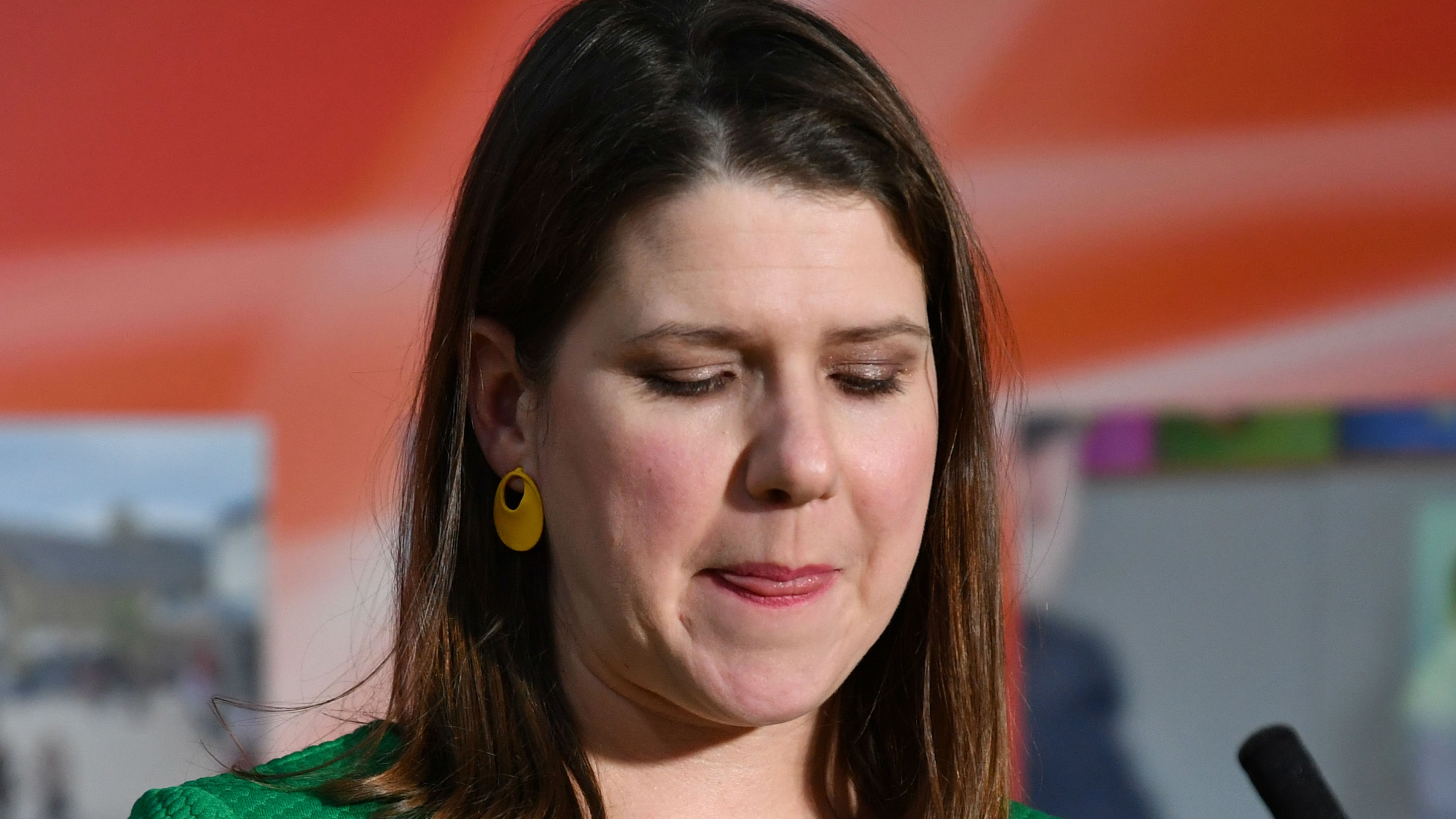Five election lessons for the Liberal Democrats
Post-mortem begins after Jo Swinson’s party loses vital seats - including her own

A free daily email with the biggest news stories of the day – and the best features from TheWeek.com
You are now subscribed
Your newsletter sign-up was successful
Jo Swinson entered the general election campaign claiming that she could credibly be the next prime minister.
But on Friday, she stepped down as the Liberal Democrat leader after losing her East Dunbartonshire seat in a general election that left her party with just 11 MPs.
The Lib Dems’ deputy leader Ed Davey and party president Sal Brinton are taking over until a leadership vote next year, as the party reels from its second-worst election performance in three decades. Only the 2015 result was more disastrous, with the Lib Dems slumping from 57 to eight seats.
The Week
Escape your echo chamber. Get the facts behind the news, plus analysis from multiple perspectives.

Sign up for The Week's Free Newsletters
From our morning news briefing to a weekly Good News Newsletter, get the best of The Week delivered directly to your inbox.
From our morning news briefing to a weekly Good News Newsletter, get the best of The Week delivered directly to your inbox.
So what went wrong this time round - and what lessons can be learned?
The revoke policy
Standing down after losing her seat to the Scottish National Party by a margin of just 149, Swinson said that she was “proud” to have been an “unapologetic voice of Remain in this election”. But her pledge to revoke Brexit without a second referendum if the Lib Dems won a majority prompted widespread criticism, including from within her party.
Senior Lib Dem figures admitted during the campaign that the party might have committed a “tactical error” with the hard-line stance, as the Financial Times reported. Even Swinson began downgrading her ambitions, instead focusing more on depriving the Tories of a majority and backing a second referendum.
A free daily email with the biggest news stories of the day – and the best features from TheWeek.com
Defeat of defectors
The number of Lib Dem MPs swelled from 12 after the 2017 general election to 21 before the 12 December vote, following defections to the party by a number of Tory and Labour MPs. However, none of the defectors retained their seats.
Former Labour MP Chuka Umunna and ex-Tory Sarah Wollaston were among the big names to go.
Tactical voting failures
There were some silver linings for Swinson on election night: the Lib Dems’ Sarah Olney beat Tory minister Zac Goldsmith to claim the Richmond Park seat. And the Lib Dems actually saw a significant gain in vote share, up to 11.5% from 7.4% in 2017.
The “punishing first-past-the-post electoral system” hamstrings the small parties, writes Layla Moran, Lib Dem MP for Oxford West and Abingdon, in an article for The Independent. Moran argues that the parties on the centre and left “need to stop this squabbling and come together in a cooperative force to defeat the now-united right” next time the nation heads to the polls.
Echoing that message, The Guardian blames the Lib Dem defeats in part on a “lack of effective tactical voting, not least as in some seats it was not clear whether they or Labour were the better option for anti-Conservative locals”.
–––––––––––––––––––––––––––––––
For a round-up of the most important stories from around the world - and a concise, refreshing and balanced take on the week’s news agenda - try The Week magazine. Start your trial subscription today –––––––––––––––––––––––––––––––
Lacking in leadership?
“Up against two well established and often divisive opponents, the Lib Dems had hoped Ms Swinson’s relative obscurity would prove an advantage with voters who hold deeply entrenched views about her rivals,” according to the FT.
But YouGov polling during the campaign suggested that Swinson was becoming less popular as her visibility increased. Nevertheless, her predecessor Vince Cable does not lay the blame for the election result at her feet.
In an article for The Independent, Cable says that Swinson is “being made a scapegoat” in the same way that Premier League managers are “blamed for defeat even when they are not responsible”.
Build on local government base
Cable says that the Lib Dems retain a strong local government base and suggests that this should be the “new foundation to build from”. Writing in The Independent, he notes that the party has “re-established a large number of strong second places, lost in 2015 and 2017, which are a precondition for future gains”.
The Remain and progressive causes have been “badly damaged”, says Cable - “but only for now, until we get off the floor and give the electorate a plausible alternative to this government’s precarious mandate”.